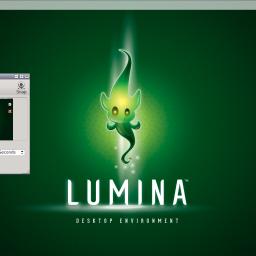PC-BSD's new Lumina desktop is advancing fast
 Earlier this year the folks at PC-BSD announced they would be developing a new desktop environment by the name of Lumina. The official PC-BSD blog <recently posted a progress update on the Lumina desktop that shows they are making huge progress. There are screen shots and a list of updated features.
Earlier this year the folks at PC-BSD announced they would be developing a new desktop environment by the name of Lumina. The official PC-BSD blog <recently posted a progress update on the Lumina desktop that shows they are making huge progress. There are screen shots and a list of updated features.PC-BSD is a popular desktop-oriented BSD flavor that is really just FreeBSD with extras.
Lumina is a new light weight window manager built on Fluxbox using the Qt toolkit. The development is spearheaded by Ken Moore of the PC-BSD project.
There's lots more about Lumina at their Lumina FAQ. Most important of all is the question "Why a new desktop environment?" Their answer is related to the fact that because the other desktops are built first on Linux they must be ported, which is taking more and more time and energy; furthermore, many desktops now depend on Linux-specific functionality that makes the port almost impossible.
The Lumina desktop will also provide BSD-specific features through its file manager, like full ZFS snapshot restore capability.
[Ed. note: sneak preview, but I was planning on doing this one for Distro Friday tomorrow. Stay tuned.]
There's also the fact that the BSDs are traditionally server, not desktop OSes, and Gnome3 is a very unfriendly, heavyweight desktop with lots of packages and dependencies and high resource demands from the hardware. That makes it unsuitable for servers.
That said, it's apparently running on OpenBSD, which is somewhat of a minor miracle.